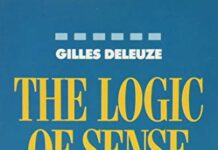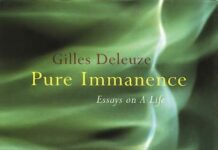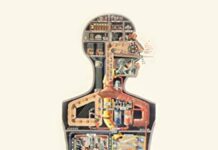
Ebook Info
- Published: 1990
- Number of pages: 144 pages
- Format: PDF
- File Size: 14.40 MB
- Authors: Gilles Deleuze
Description
What is needed for something new to appear? According to Gilles Deleuze, one of the most brilliant of contemporary philosophers, this question of “novelty” is the major problem posed by Bergson’s work. In Bergsonism, Deleuze demonstrates both the development and the range of three fundamental Bergsonian concepts: duration, memory, and the élan vital.A perfect companion book to Bergson’s Matter and Memory, Bergsonism is also of particular interest to students of Deleuze’s own work, influenced as it is by Bergson. Given his texts on Nietzsche, Kafka, and cinema, this book by Deleuze is essential to his English-reading audience. The paperback contains a new afterword prepared by the author especially for this English-language edition.
User’s Reviews
Editorial Reviews: Review “This translation of Bergsonism is an important, welcome addition to the English-speaking philosophical community. Deleuze elucidates and facilitates our comprehension of Bergson’s original, fascinating, but difficult metaphysical idea that reality should be understood not in terms of space, but only in terms of time…. This book, as original and concise as it is comprehensive, will serve as an excellent introduction for those interested in the philosophy of Bergson.” ― Small Press About the Author Gilles Deleuze (1925-1995) was Professor of Philosophy at the University of Paris VIII, Vincennes/Saint Denis. He published 25 books, including five in collaboration with Fé lix Guattari.Hugh Tomlinson is the translator of Deleuze’s Nietzsche and Philosophy and Kant’s Critical Philosophy.Barbara Habberjam is a translator living in England.
Reviews from Amazon users which were colected at the time this book was published on the website:
⭐Gilles Deleuze wrote two kinds of books. On the one hand, he wrote books that were meant to be explications of his own philosophy and ontology, both alone and in collaboration with Felix Guattari. On the other hand, he wrote numerous works that were meant to be explications of the work of other philosophers, usually philosophers that Deleuze considered to be important influences on his own ontology. I would say it is impossible to understand the first set of books without reading the second, and vice versa. They need to be read together. There are, therefore, two reasons to read this work. First, it is a brilliant exposition of the work of Henri Bergson, and second, it is essential for understanding Deleuze’s own philosophy, particularly his understanding of the virtual, multiplicity, and the univocity of Being.The book is meant to be an analysis of Henri Bergson’s ontology, and Deleuze analyzes the most important concepts in Bergson’s philosophy in great detail (duration, memory, élan vital, time, space, multiplicity, the virtual, intuition, etc.). The book is full of brilliant insights on Bergson’s philosophy which it would not be possible to adequately summarize in this review. I have decided to simply try to summarize two of Deleuze’s insights, however inadequate my short summaries must be. I have chosen them almost at random.First, Deleuze presents a brilliant account of Bergson’s method of intuition in the first chapter of this book. Deleuze argues against treating Bergson’s method of intuition as a simple intuition of the immediate, bordering on the mystical, and lacking in rigor. Deleuze believes the method of intuition is a rigorous method of distinguishing between true and false problems by analyzing composites into their tendencies. This method leads to a very different metaphysics than traditional metaphysics. For example, Bergson treats time and space as the two fundamental principles (or tendencies) of his metaphysics, as opposed to the metaphysical systems which have been dominant in the West, often inspired by Plato, which tend to be based on a fundamental disjunction between the spatial-temporal taken together, on the one hand, and the eternal (non-temporal, non-spatial), on the other. This has some dramatic implications for ontology. For Plato the Forms are eternal. One can then ask, what determines their existence in space and time? Why does a Form become real at one time rather than another? Why does the Form “man” for example, become instantiated in this particular place and time? This cannot be explained by the Form on its own since the Form is eternal and exists at all times, and so there is the necessity for an external agent (God, perhaps, or the Demiurge) to explain creation in time. For Bergson, there are no eternal Forms, and time itself is a creative power, or process, which through a process of differentiation (or actualization of the virtual) creatively produces forms. By failing to analyze a composite adequately (the spatial-temporal world) one is, therefore, led to false problems, and a false metaphysics.Second, Deleuze argues that in his later work Bergson moves away from duration as purely psychological. Duration is Being for Bergson. There are, therefore, numerous durations which are not reducible to each other. This raises the question of whether there are one or many durations. Deleuze convincingly argues that the question, Are there one or many durations? should be reconceived as, What kind of multiplicity is duration? This leads to an interesting discussion of Bergson’s interpretation of Einstein’s theory of relativity (Bergson believed that Einstein treated time as the wrong kind of multiplicity, an actual multiplicity that was numerical and discontinuous, rather than a virtual multiplicity that is continuous and qualitative). I have only provided two examples of places where Deleuze provides a brilliant, and compelling, interpretation of Bergson’s philosophy. Most of Deleuze’s interpretations of Bergson in this book are, in my opinion, faithful interpretations (contrary to what many people seem to think). There are plenty more examples that I could have cited despite the book’s relatively short length. This book is, therefore, definitely worth reading even if one’s primary interest is in Bergson rather than Deleuze.The book is also worth reading, however, because it develops a number of concepts that are important to Deleuze’s own philosophy and ontology. Deleuze presents one of his most sustained analyses of the concept of the virtual in this book. This book is, therefore, quite helpful when trying to understand Deleuze’s own work, especially books like
⭐. Of course, the reader has to be careful to distinguish between the aspects of Bergson’s philosophy that Deleuze accepts and those he rejects. Deleuze develops Bergson’s concept of the virtual, and not his own, in this book, but his analysis is still quite helpful in shedding light on his own understanding of the virtual, since it is, in large part, derived from Bergson. Deleuze’s discussion of whether duration is one or many in Bergson is also relevant to his own concept of multiplicity, and his concept of the univocity of Being.The book is challenging, and will certainly require more than one read through to fully digest its contents. It is also helpful if one is already familiar, not only with Bergson, but with Deleuze as well. You do not need to be an expert in either (I am not) but I think anyone coming to this work without having read a word of Bergson or Deleuze is going to find it very rough going. One should at least have a basic understanding of what Bergson means by duration, and what Deleuze means by the virtual, before reading this book. That is, in my opinion, an absolute bare minimum for understanding this book.
⭐As opposed to his work with Guattari, Deleuze is absolutely sharp in this one. His exposition of Bergson is illuminating, and while Bergson’s work really doesn’t need this (as it is already supremely lucid); what Deleuze does is synthesize introductions to some of his concepts that get expanded on in detail in “Difference and Repetition”. Mostly Deleuze integrates his ideas of the Virtual and Actual with Bergson’s notions of time. Delueze uses a cone analogy of time, which is sufficient – to offer a concise picture of his intergration of concepts with that of Bergson’s. To be totally clear, with full estimation – the result is astounding! Additionally Deleuze elaborates on Bergson’s ideas of Intuition As Method, Free Will, Elan Vital and of course Matter and Memory. It’s a short book, but it’s depth goes beyond the number of pages. Lastly, I did notice that I was fortunate enough to have a working understanding of the Virtual and Actual during the reading; my suggestion is that some brush up of these concepts will help greatly to any novice. I Can’t recommend this book enough.
⭐Deleuze is trying to save Bergson from being lost to the ages and reduced to a cliché. Deleuze saw something in Bergson that needed to be made more precise. I believe the same will have to be done with Deleuze, what is the precise formulation of Deleuzian-Bergsonism? It is a beautiful web of ideas. The one concept I always remained skeptical of in Deleuze’s work was the virtual, but it is by reading this work and Bergson’s work that I began to see that the virtual is a precise idea. It is the connecting tissue which links intensive difference, elan vital, memory, novelty, multiplicity, duration etc. The one major comment I’d like to make about this books is that the material is difficult, but once you become practiced in it, this book in particular reads like a lightning strike, it moves fast, there isn’t one wasted or unimportant sentence. Of all Deleuze’s books this one is written with the most urgency. It is the reading equivalent of being slapped in the face while dozing off. I see this work as his manifesto, where you see how high the stakes are.
⭐best analysis of Bergson’s method… period. “easy” to read (for a Deleuze work).. the lecture format is perfect for the project, and it sticks to a description of Bergson without a lot of secondary references that could be overwhelming to someone merely looking for insight into a Bergson text without knowing ALL about the Western philosophical tradition.
⭐It is important to point out that Deleuze is a philosopher both expounding and commenting on Bergson’s philosophy. In this book he attempts to connect together the important aspects of Bergson’s work ranging from his very earliest treatise “Time and Free Will (TFW)”, “Matter and Memory (MM)” to “Creative Evolution (CE)”. These are the major texts but he also considers the others such as “Mind Energy”, “The Creative Mind” and “The Two Sources of Morality and Religion”.The first of these introduces the concept of duration which is significantly different from the modern idea of time. It is Deleuze’s task to join together Bergson’s earliest idea of duration and to both see how this concept changes within each of the major texts as well as how it connects them. For example, the idea of duration firstly assumed a kind of psycholigical time or the time the human being actually experiences in his/her everyday life. This is duration in TFW. In MM, Bergson attempts to connect the mind and the body without necessarily letting go of these dualisms but by bypassing them. In CE, duration becomes something physical rather than purely subjective. Bergsonism attempts to connect these issues in a coherent framework linked to the idea of difference and virtuality. This means that there is not just a single duration, i.e. that of the subject, but matter itself also undergoes its own duration.The concept of virtuality maintains its mystery throughout perhaps because the idea of wholeness only makes sense as long as it is never totally explicit. This comes out more clearly in Bortoft’s “The Wholeness of Nature”. In other words the virtual differentiates itself to become actual and so is very different from the possible. The virtual is in fact not directly related to the actual in any linear sense.This is one of Deleuze’s best books in the sense that it follows a plan elucidating the three main aspects of Bergson’s philosophy: duration, memory and the elan vital. It also unifies them which was never something which stood out in Bergson’s work. However Deleuze is a very different philosopher from Bergson, Bergson writes using his principles of philosophy, Deleuze’s writing is far more complex although in this text it is remarkably lucid. Anyone not familiar with Bergson’s work should read his three central works: TFW, MM and CE in that order, Deleuze’s Bergsonism then becomes comprehensible. It also pays to re-read Deleuze’s works e.g. this text and his essay on “Bergson’s Conception of Difference” (in “The New Bergson”, edited Mullarkey) several times in order to get used to the Deleuzian way of writing and the very non-intuitive ideas present therein (intuitive used in the common sense not Bergson’s).Deleuze’s book succeeds in some ways but not in others, maybe this is the reason why he continues to elucidate his work in books such as “Difference and Repetition”. Nonetheless a worthy read.
⭐Deleuze writes this very much with his own version of Bergson in mind, but it is an original take on Bergson, that is consistently of the highest quality and will stimulate your own original thinking.
⭐Deleuze suggests Bergson. When bio-chemistry merges with physics during the mid-21st century. Also, a description of the mind that doesn’t exist, except when people create it.
⭐Not found.
Keywords
Free Download Bergsonism in PDF format
Bergsonism PDF Free Download
Download Bergsonism 1990 PDF Free
Bergsonism 1990 PDF Free Download
Download Bergsonism PDF
Free Download Ebook Bergsonism





